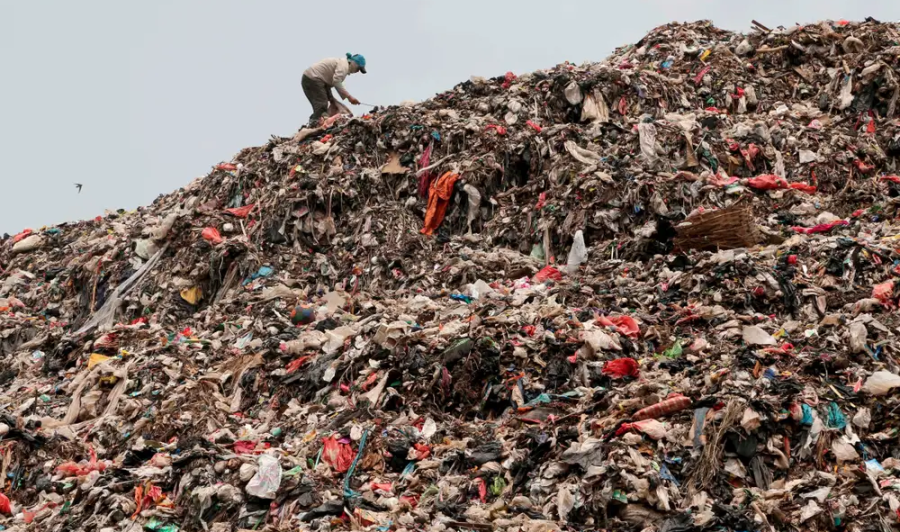
Recyclables that are put in the incorrect bin, or contaminated by filthy food containers, are a common cause of contamination in recycling bins. Large amounts of recyclable material may be rendered unusable due to contamination. Some facilities can’t process certain materials.
Plastic straws & bags, as well as other commonly used utensils like yogurt containers and takeout cartons, cannot always be recycled. They are typically disposed of in one of three ways: burned, dumped in landfills, or dumped into the sea. Even though waste-to-energy plants are occasionally utilized to generate energy, they have been linked to harmful emissions in the past.
US Waste Management Issues
Many dangerous pollutants, such as carbon dioxide and methane, are released into the atmosphere when garbage is deposited in landfills. As a result, our oceans are clogged with plastic debris.
The Chinese Government Has Banned The Disposal Of Plastic Waste
Because its industrial sector was flourishing and in need of those materials to feed it, China has been responsible for recycling over half of the world’s discarded materials for decades. Plastic, paper, and metals were exported to China by the United States in 2016.
30% of these combined recyclables were polluted with non-recyclable material, never recycled, and ended up harming China’s countryside and oceans, in reality. Every year, between 1.3 million and 1.5 million metric tonnes of plastic make their way into the water off the coast of China.
According to the new stricter purity criteria set by China’s National Sword policy, most plastics, as well as other materials, could not be imported into the country in 2018.
In 2018, the United States shipped 68,000 containers of plastic waste to Vietnam, Malaysia, & Thailand. However, when countries like China, India, and the European Union began imposing import limits on plastic garbage, the United States began diverting its waste to low-cost labor countries like Cambodia and Senegal.
Despite this, the United States continues to export nearly 1 million metric tonnes of plastic garbage each year, frequently to countries that are already overburdened. According to junk disposal experts at Syracuse Dumpster Rental HQ, many plastic bottles destined for recycling in other countries are deemed unsuitable and wind up in landfills.
Junk Disposal Improvements
According to a recent dumpster rental study, the plastic garbage sent to Southeast Asia results in contaminated water and crop mortality, as well as respiratory ailments owing to toxic gases from incineration and organized crime.
A Lack Of A Dumpster Rental Marketplace
U.S. recycling was thrown into chaos even without the Chinese market of plastic and other recyclable materials.
“The economics are tough,” said Nilda Mesa, head of the Earth Institute’s Centre for Environmental Urban Development’s Urban Sustainability & Equity Planning Program. For these facilities and towns to repay their collecting and transportation costs, they must sell the recycled materials. However, it only covers a small percentage of the overall costs if there are no markets for recycled material.
Processors and municipalities in the United States have thus been forced to choose between paying more of it to recycle and simply discarding waste. After making $95,000 selling recyclables, the city of Stamford, CT would have to pay $700,000 for their removal in 2018.
After 2018, Bakersfield, CA would have to spend $25 a tonne to dispose of its recyclables, which had previously earned the city $65 a tonne. Previously, Franklin, New Hampshire, could sell their recyclables for $6 per tonne; currently, the transfer station costs $125 per tonne to recover the material or $68 per tonne to incinerate it.
Recycling programs have been slashed in cities that couldn’t afford to pay more. The number of recycling drop-off locations via dumpster rentals has decreased, and some programs have been reintroduced after public protests. Some schemes have increased charges to households while others have restricted the products they accept.

